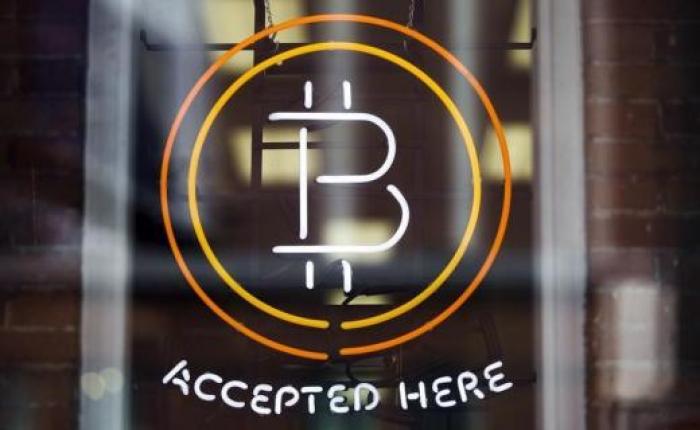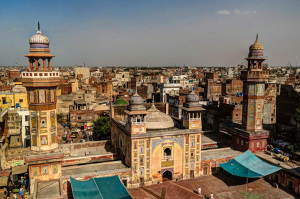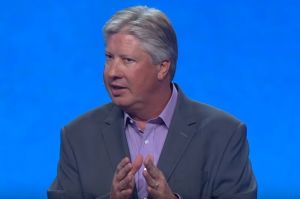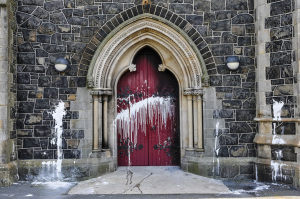How a missionary used Bitcoin to transform a town, then a nation

A few years ago, a missionary decided to do a small and seemingly inconsequential experiment in El Zonte, a beach town in El Salvador. The plan was to get the community to adopt Bitcoin so that they wouldn’t have to rely so much on the cash economy. What he started would change the country in a remarkably short amount of time.
Until recently, El Salvador was known for two things: murder and fleeing immigrants. Known to many as the murder capital of the world, the endemic gang violence meant that it became the most dangerous country in the world that was not at war. Fortunately, despite the travel warnings from the US state department, the good waves in El Salvador were able to attract growing numbers of foreign surfers
Like many developing countries, El Salvador was dependent on foreign aid. Specifically, the International Monetary Fund, or the IMF. The IMF is an organization that gives loans to countries as they need them. This is usually in dollars, and like all fiat currency, is created for the sake of the borrower.
IMF loans do not have any opportunity cost. That is, they’re not loans made from someone’s savings, but loans created into existence. The organization that can do this for the dollar is the Federal Reserve, the central bank of the United States. The money gets funneled into the IMF and loans subsequently given to developing countries.
To many people, this doesn’t sound bad -- in fact, it may sound very positive since poor countries are getting foreign aid. After all, isn’t having access to more money going to be good for their development? Yet if you study history, IMF loans are terrible for these countries. The reason is that these loans don’t come in as pure loans, they come with strings attached.
The IMF dictates how countries spend the loaned money. Only a certain percentage of the budget can be spent on infrastructure, for instance. But the money is irresistible and the governments agree to let the IMF dictate policies. Unfortunately, this often means brutal austerity measures that impact the poor and the vulnerable.
What happens next is that much of the loaned money goes into the pockets of the leaders, as they abuse their position to take advantage of IMF loans. For example, in El Salvador, 3 of the 4 previous presidents to Bukele have been imprisoned on charges of embezzlement. Historically, many countries have not been able to repay their loans, and they end up selling state-owned property from the country to make up the difference. The buyers tend to be multinational corporations. In sum, IMF loans generally result in property going from the developing country to rich people and corporations in the first world. What starts as money printing in the US ends with US companies owning a good chunk of the country.
“The rich rules over the poor, And the borrower becomes the lender’s slave.”
- Proverbs 22:7
This is what we call monetary imperialism. Fiat money is used to enslave another country, without a shot fired. Countries essentially get hoodwinked into selling their country’s resources to US-based companies through these loans and they remain under the thumb of foreign powers. El Salvador, like many that have taken IMF loans, was a country under monetary imperialism.
In 2019, a missionary living in El Salvador for several years decided to try something different. Mike Peterson started working with the community of El Zonte to adopt Bitcoin. He did so because of the practical realities of the businesses in the area. El Salvador hasn’t had their own currency in a long time and had officially dollarized a couple decades ago. Because of a lack of digital infrastructure, the country has been cash-heavy and banking services have traditionally been difficult to attain. They didn’t have fancy point-of-sale systems and needed some more convenient way to do commerce.
He introduced Bitcoin to El Zonte so that residents could have more convenience, privacy, and security for their money. They got banking services without the need for a bank and the benefits versus cash were obvious. There’s no need to physically hand over cash and the transaction can be done via phone, which most Salvadorans have.
The results were fantastic for all involved. There is, for instance, a mortgage program by a Christian charity in El Salvador that uses Bitcoin for payment services. This is a far more efficient system than cash, which would require someone to come to their house, or for the borrower to take the bus to the bank and pay there. The savings in time versus cash allowed for so many more types of transactions like this. Mortgages are something we take for granted in the US, but are not common in El Salvador for that reason. How could anyone build up a credit score if transactions are all done in cash?
A more subtle change is the ability for people in El Zonte to save. The first people getting paid in Bitcoin were kids, who worked jobs to improve the community as a way to decrease the appeal of gangs. They got paid in Bitcoin to clean up the beach for example. As they got paid in this new currency, they learned a lot more about it, specifically, how useful it was as a savings vehicle. The price appreciation certainly helped and when their families would get into some sort of financial emergency–say, some health problem or unexpected expense–the kids started contributing. Adults soon recognized how it was changing their children for the better and became a lot more open about Bitcoin’s benefits.
The ability to be your own bank and the ability to save without fear of theft, made all the difference. Kids started thinking about the future and education and living for the long term. Gang membership went down. Kids stopped dropping out of school. They were no longer just riding it out until 18, sneaking into the US and working as day laborers, but started looking into remote work.
Hope House is the community missions facility that the Bitcoin Beach team established in El Zonte and the interest there exploded. They started having classes at Hope House, for English, Bitcoin, and programming, and it’s been supercharged by the establishment of Bitcoin in the community. Foreign companies are looking to invest there and the kids really have hope for a better life. Upstairs in Hope House is a remote work area, where Salvadorans work for foreign-based companies. They can see for themselves that opportunities, many enabled by Bitcoin, are available to them.
The perception of El Zonte started to change. Many curious Bitcoin enthusiasts came to check out the place to see what was going on. News stories started getting written about El Zonte and how Bitcoin was transforming the place. International media started reporting about it. For the people of El Salvador, this was noteworthy as almost all stories about El Salvador in the international media were previously negative. This was a huge boon for the community. The government of El Salvador took notice. They started to cautiously investigate Bitcoin and the ruling party started adopting it step by step. What started as a faithful missionary’s decision to help out a small community started to make international headlines.
The Salvadoran government started adopting Bitcoin in earnest, but there was something coming to a head. IMF loans were due and they needed to figure out whether this was something worth continuing. IMF policies had been hampering them for so long, but could Bitcoin be an alternative? The government decided against IMF loans and instead went with Bitcoin financing. They decided to issue the Volcano Bond, which allowed them to use the upside of Bitcoin to attract more buyers. They would have the ability to raise financing for infrastructure projects to improve the country. The bond is still ongoing, but is projected to be significantly oversubscribed.
The people on the ground in El Salvador have noticed a huge change in how the government deals with them. Any country taking IMF loans ends up serving the IMF masters rather than their own people. The IMF bears a large part of the responsibility for the corruption that’s rampant in developing countries. Taking away the IMF and its many tentacles was an emancipation, a huge noxious cloud over the country that lifted. The government served the people, not the IMF paymasters. As a result, many missionaries have noted how the government treats them very differently. For many years, whenever they wanted to do something for the community, they would get tangled in red tape. Only after many months of bureaucratic box checking would they be allowed to do something beneficial for the community.
Now, government officials are asking the missionaries and non-profit organizations how they can help! This is a startling turnaround and cause for great optimism.
Monetary oppression has a profoundly spiritual aspect. The self-image of Salvadorans for a long time was that of being second-class world citizens, as people who were ashamed of coming from there, being at the bottom of the totem pole, of which the US is at the top. The drain of talent and resources to first-world countries has been devastating. What’s changing now is that there's optimism again in the country. People who have been gone for 20 years are trying to find their way back. People from other Central and Latin American countries are coming to El Salvador to learn how they can also get out from under the shackles of the IMF. This can be felt on the ground when you visit. Infrastructure is being built, people are starting businesses, tourism is thriving. The country is changing.
When the Bible speaks of the rulers, the powers, the world forces of this darkness and the spiritual forces of wickedness (Eph 6:12), we tend to think of them as demonic forces that are abstract. What if the spiritual forces of wickedness are the monetary organizations like the IMF? What if these forces have been oppressing a significant portion of the world and we were just too blind to see it?
Jimmy Song is a Bitcoin developer, educator and entrepreneur. He's a programmer with over 20 years experience, an open source contributor to many different Bitcoin projects and the author of Programming Bitcoin from O'Reilly, The Little Bitcoin Book, Thank God for Bitcoin and BItcoin and the American Dream. Jimmy has been a lecturer at the University of Texas, an expert witness in legal cases involving Bitcoin and is an advisor to multiple companies. Jimmy writes a weekly newsletter, Bitcoin Tech Talk and has a podcast Bitcoin Fixes This.





























